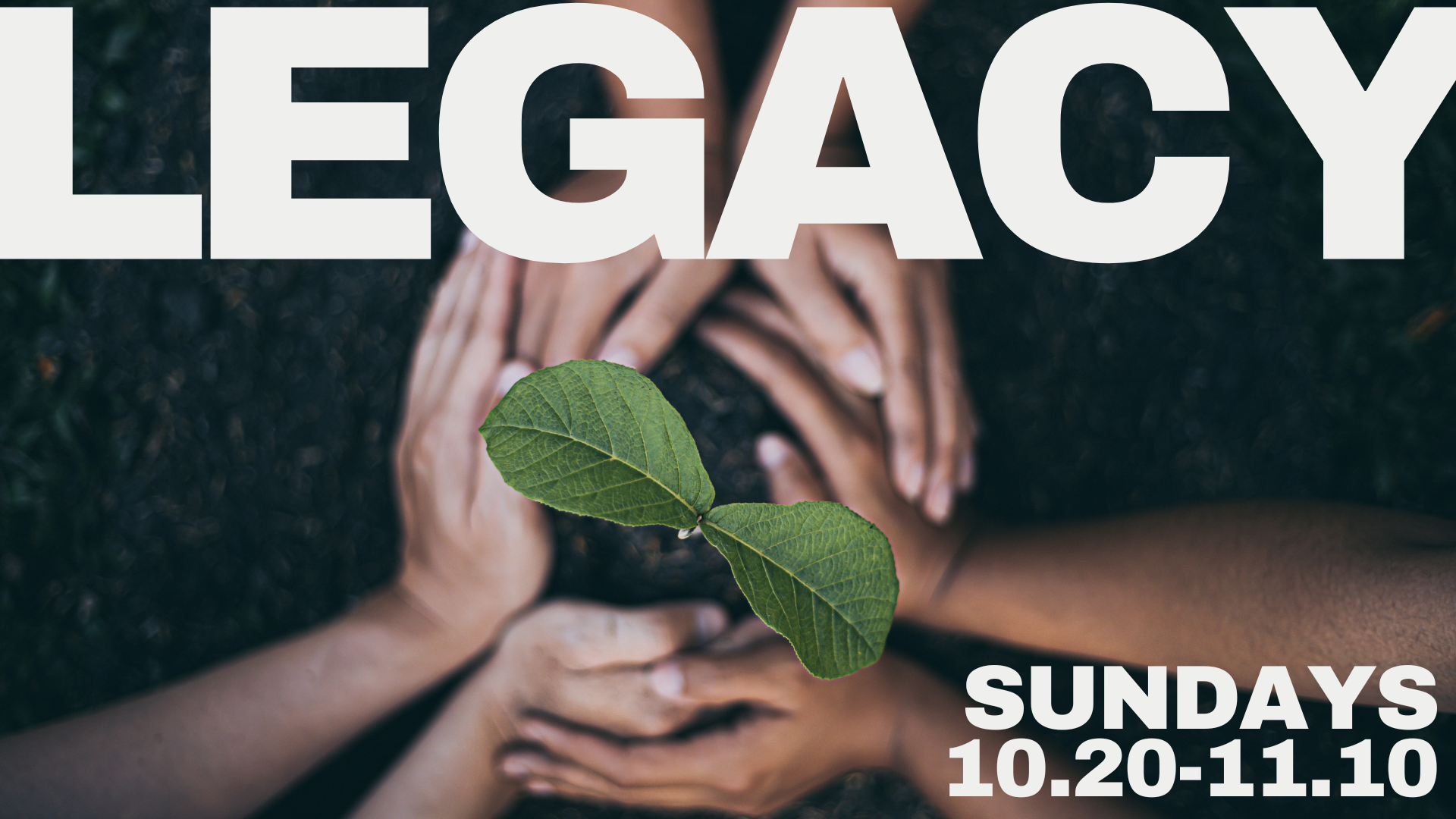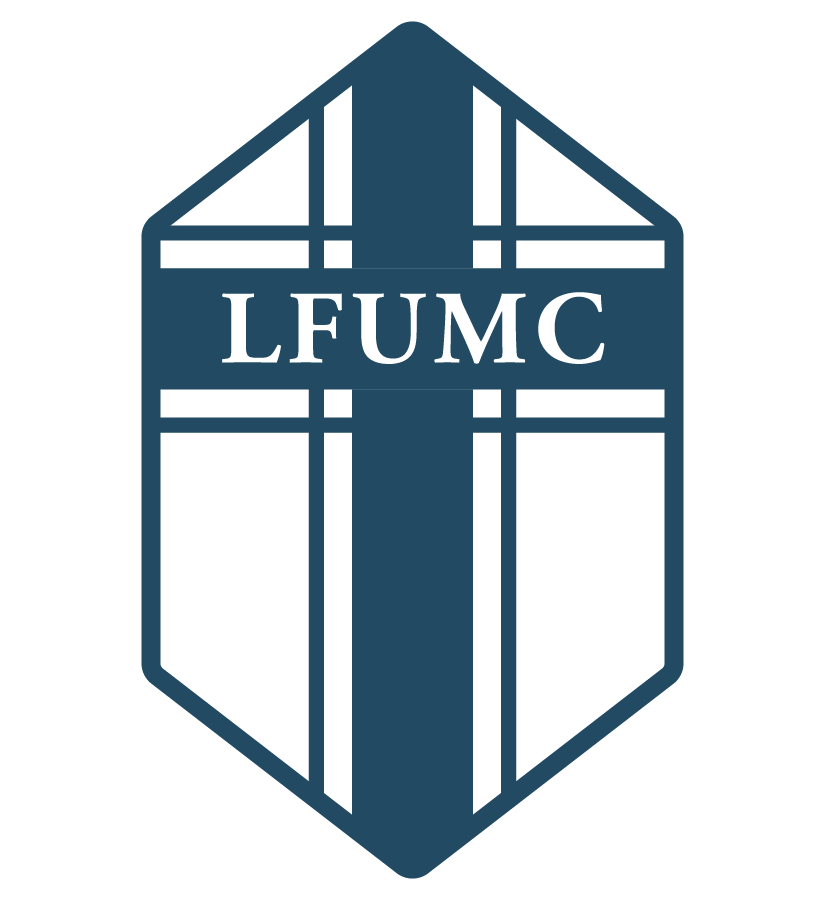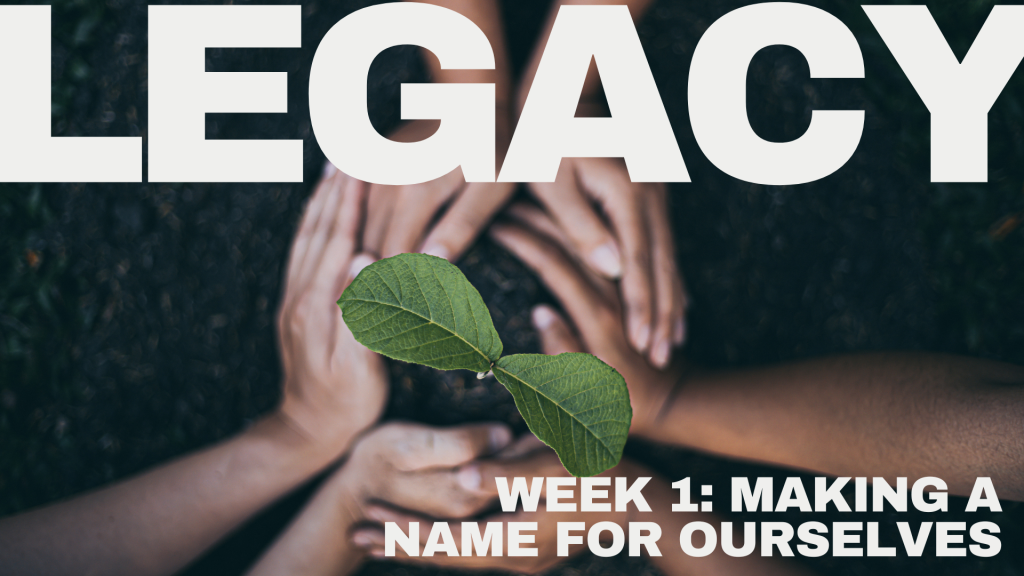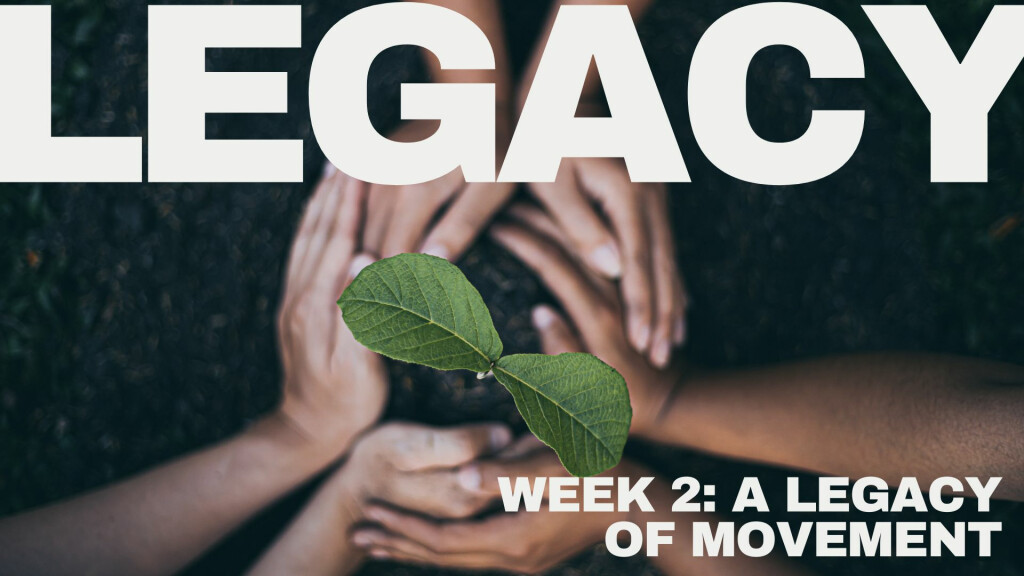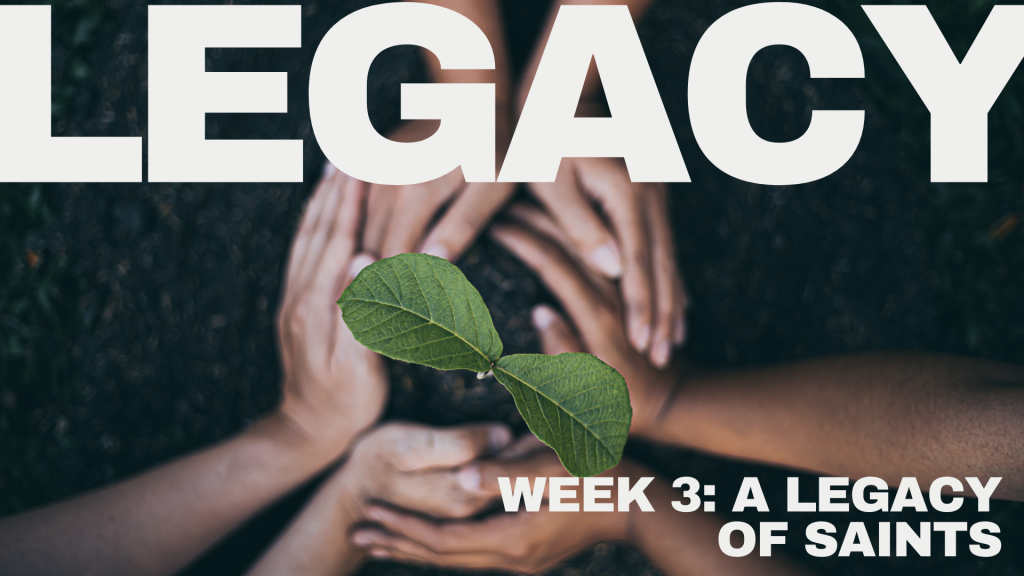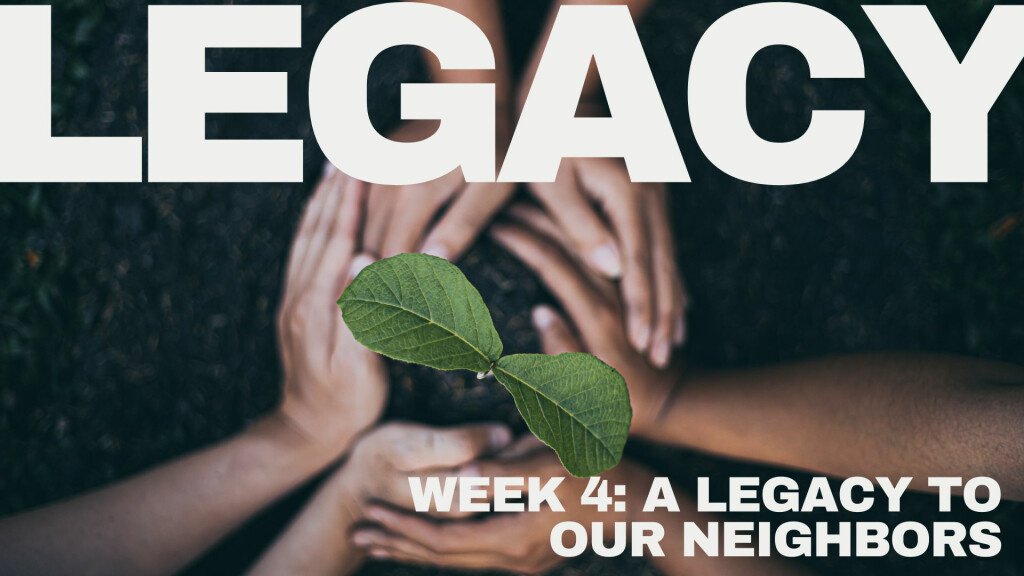November 10, 2024 | Ryan Bennett
Passage: Luke
Today ends our Legacy series—at least, it ends here as a sermon series. It hit me this week that I am preaching on it one more time next Sunday. Next Sunday I will be preaching at my home church, Cookeville First UMC as they celebrate 75 years in their sanctuary. A good friend is the pastor there and invited me, and I have never been able to preach at my home church so I am excited about that. I will be preaching about their legacy that nurtured and helped send me out as a pastor. I am excited and thankful for that opportunity.
As we finish, I want to reference a sermon I preached almost 7 years ago here. I had only been your pastor for two months at that time. If I had a greatest hits CD of my sermons, it would be on it. In fact it may be one of only two sermons on it, along with the one where I talked about blowing myself up and walking out of the fire. (It would be a 45 record for those old enough to know that that is.) The reason I say so is that these are the two sermons I hear people mention still today. I think I was still new enough for both of those sermons where you were still listening to what I was saying.
The sermon I’m referencing talked about how we are known as a Main Street Church. Our physical address is 415 West Main St, and we have been known for over 150 years as a Main St church—either on East Main, where we were for over 100 years, or now on West Main where we’ve been for over 50 years. Being a Main St church carries with it certain connotations, and over the last 7 years we have embraced that by hosting both Lebanon Rotary Clubs, the Kiwanis Club, the Women’s professional group, and our Leaders Edge breakfast where Lebanon’s key leaders come to grow and have a better impact on our community. This church’s influence and witness has never been stronger in the community. A couple of weeks ago I had the opportunity to offer the invocation at Wilson County’s 225th anniversary celebration, and next week I get to offer the invocation at the Mayor’s swearing-in ceremony at City Hall—both things that the pastor of a Main St church get to do, and I consider it a great privilege to represent our church in these events. Being a Main Street church connects us to government, to local commerce and downtown Lebanon, to Cumberland University, and to the world.
I am proud of how we have grown as a Main street church over the last 7 years, but I think what made my sermon memorable was pointing out that we own almost a square block here in downtown Lebanon, and the parsonage on site has a Hill Street address, and we have an entrance to the church off of Hill Street. The demographics of Hill Street are drastically different than of Main Street, and it has a drastically different feel to it as you drive down it. The railroad tracks run just beside the houses on Hill Street, making it less than desirable to live there. Many of the houses are low income rentals. I went back and found a manuscript of my sermon from seven years ago, and here is what I said then: “I want us to be a Hill Street church, too. Hill Street is the road we would take from our parking lot to take us to our closest schools so we can be a neighbor to them. Hill Street connects this church to some of the poorest areas I have observed in Lebanon. Hill Street connects us to the more ethnically diverse areas of Lebanon. We should be proud that we are a Main Street church and seek to allow that identity to inform how we be a neighbor to our community around us, but we should also strive to be a Hill Street church too, that uses our strategic location to be a neighbor to persons who maybe have been neglected or pushed aside.”
You know what, seven years later this makes me really proud of our church. We have lived into that in a huge way. We have adopted the Alternative School and offer hope to students who have gotten off track, helping them to know they have worth. We have become a major strategic partner to LSSD and as their school resource director Beth Petty reminds me, I told her we would never say no to them and we haven't, even when they said they needed a vehicle during COVID. One of the coolest ministries I have witnessed is the food and finance classes we do in partnership with LSSD and other local business partners like Wilson Bank, where at-risk families come here on Tuesday nights to learn how to get their finances under control through budgeting and meal planning and prep and things like that. In their classes right now, they are also learning ways to help others as they make breakfast casseroles for our unhoused friends in Compassionate Hands over the winter housing season. Since 2020, we have also given out the equivalent of 621,650 meals as we strive to eradicate hunger in our community.
Much of the work we do is made possible by our missions fund. It bought crock pots for every participant in our food and finance course. It buys the food for them to take home from recipes they learn to cook, and it undergirds our large food distributions and our everyday food pantry, and so much more. You can give specifically to the missions fund by noting “missions” on your check or electronically when you give. It has been a huge force for us serving as a Hill Street Church.
Being both a Main Street church and a Hill Street Church is critical to our legacy. Our text for today is a familiar one to many of us. Jesus told the parable we refer to as The Good Samaritan in response to a real question he was asked: AND WHO IS MY NEIGHBOR? This was asked by an expert of the law, by which we mean religious law. This expert was trying to trap Jesus by getting him to say things they could use against him. He asked Jesus a question, but Jesus asked him questions in return, putting his title as an expert on the line, making it look like he had to prove himself. Jesus got the expert to admit a correct understanding of how to inherit eternal life: TO LOVE THE LORD WITH ALL OF YOUR HEART AND WITH ALL OF YOUR SOUL AND WITH ALL OF YOUR STRENGTH AND WITH ALL OF YOUR MIND AND LOVE YOUR NEIGHBOR AS YOURSELF. Jesus affirmed that was correct; Do this and you will live. But the legalist took it one step further: Who is my neighbor?
I am not going to retell the entire parable but we know that in it, a Jewish man is beaten and robbed and left on the side of the road for dead. Two Jewish religious leaders passed by him, made excuses of why they couldn’t help, and left him there. But there was a Samaritan man, someone who would be despised by Jewish persons, who saw him, stopped and gave him drink, cleaned his wounds, took him to an inn, paid for him to stay and get well, and promised to settle any tab the man accrued once he came back that way. Then Jesus asked the expert: WHICH OF THESE THREE WAS A NEIGHBOR TO THIS MAN IN NEED? The answer was obvious but the man couldn’t bring himself to say THE SAMARITAN because of his hatred, so he simply responded THE ONE WHO SHOWED HIM MERCY. Jesus said GO AND DO LIKEWISE.
The NEIGHBOR was the ONE WHO SHOWED MERCY. Jesus demands WE GO AND DO LIKEWISE — INDISCRIMINATELY.
As we continue to get better at being both a Main Street church and a Hill Street church, it will help us serve our community as a neighbor, to be the church that shows mercy. What a great legacy to have.
Thanks be to God
AMEN
Series Information
